Printed Edition ‖ No.: 226
The residents of eastern Aleppo or the province’s countryside in general have not witnessed the truce announced by Russia a few days earlier, except for its name, as once the truce was approved, the regime resumed bombing and shelling the neighborhoods and towns out of his control. One of the province’s activists wonders: is the truce an announcement of battle in the Russian concept?
Therefore, they are “fake” truces, as a large group of Syrians have agreed to name, since there are no serious features of calming things down in any area that has been included in the truce, with a continuous policy of “having one eye on” the “violations” of the opposition, while totally turning a blind eye to the “crimes” committed by the regime. The Russian Ministry of Defense declares a statement by which they commend the commitment of the truce in Aleppo, at a time the province witnessed raids that extended for nearly 30 districts and towns.
It does not seem that Americans are satisfied or convinced with the policy of their Russian peers in Syria, especially when their Minister of Foreign Affairs, John Kerry, stated that Washington is running out of patience in regards to the violations committed by Assad’s forces in northern Syria, to coincide with statements considered the first of its kind issued by the Foreign Affairs, announcing that Moscow has targeted Syrian forces trained by Washington.
Despite the gloomy situation in Syria and the increasing complications, five years after the beginning of protests, yet the success of bringing food convoys to besieged cities and towns gave a glimmer of a new hope. Daraya has witnessed the first humanitarian convoy in four years’ time, in addition to some humble convoys entering the neighborhood of Al-Waer, countryside of Homs and eastern Ghouta, awaiting similar solutions to get to besieged neighborhoods of Deir Ez-Zour.
However, the success of the UN bodies in entering these areas was insufficient compared to 55 Syrian organizations, which have been preparing a report revealing that the UN office in Damascus is an accomplice with the Syrian regime, with numbers practically condemning the UN role in Syria and put it in the dock, or proving that it is an accomplice of Assad in starving and killing the Syrian people.
“Fake” truces that are not applied
Following the collapse of truce agreement, approved by the US and Russia late last February, Moscow sought to impose trusteeship on the field in Syria, and entrusted its officers in the airbase of Hmeimim to monitor the functioning of the truce agreements that they have announced for a dozen time in a number of Syrian areas, which were not all successful, as if the Syrian regime is excluded from any agreement.
The most prominent case in Syria was the city of Daraya in the western countryside of Damascus, which has witnessed a remarkable quietness since the truce of late February till the mid last May, when Assad’s forces retargeted the city with artillery and rockets, to further worsen the scene with the use of Air forces and explosive barrels the city was subjected to over two years.
Earlier in June, Russia has announced a new 48-hour-truce in Daraya, to be extended under the supervision of the “Russian Center for reconciliation” in Hmeimim airbase, in an effort to ensure humanitarian delivery to civilians safely.
However, reality went the opposite side, even though a food convoy was brought to Daraya, yet the course of events on field seemed much more complicated, through the regime’s excessive shelling of residential areas, in addition to a significant increase in the number of explosive barrels used, which reached around 150 barrel within a week, not to mention the explosive cylinders and the daily repeated intrusions’ attempts.
Meanwhile, Moscow was not the least embarrassed to extend the temporary truce in Daraya every couple of days, the last of which ends at 24:00 on Saturday, June 18th. At the same time, the “Russia Today” channel covers the battle course of action in the surroundings, on Thursday, June 16th, saying “The Syrian army is making progress in the vicinity of Daraya”, then what truce are the Russians talking about?
The “fake” truces in the north were decided to be moved, by Russia to the province of Aleppo, the most dangerous area in the world, the one that accommodates complex confrontations and activities, to have the Russian Defense Ministry unilaterally announce a truce that would start in Aleppo on June 16th for 2 days, without specifying the party agreed with Moscow on applying the truce. Later on, the Russian Deputy Foreign Minister, Mikhail Bogdanov, declares that his country wants “a long-term cease fire” in Aleppo.
Again, the situation in here resembled by far the one in Daraya, as if the Syrian regime and militias on land were excluded from what Russia has declared. Air and ground escalations continued on the eastern neighborhoods, which are out of Assad’s control, in addition to dozens of villages and towns through three axes. Enab Baladi monitored on the first day of truce announcement dozens of raids with stereochemistry, cluster and phosphorus missiles, as well as explosive barrels that hit around 30 points in the city and the countryside.
Confrontations between opposition factions on one hand, and Assad’s forces and foreign militias on the other, did not stop through two main axes; south and north, where the Syrian regime seeks to complete his plan aiming at isolating the opposition areas by controlling Mallah area to the north, in daily attempts that escalated since beginning June. Also, the factions of “Jaish al-Fatah” continue their work in the south of the city, where they have expanded their control area in the surrounding of Khan Touman, and strengthened their presence at the account of the foreign militias, which received large causalities.
American – Russian Cold War
A war of statements between Washington and Russia preceded the truce’s announcement in Aleppo, initiated by US Minister of Foreign Affairs, John Kerry, openly declaring that Washington is running out of patience towards each of the Syrian regime and Russia, something that observers considered the beginning of a noticeable tension between the two countries.
Kerry, in his visit to Norway on Wednesday, said “Russia has to realize that we have limited patience, and it is extremely limited when it comes to seeking accountability of Syrian President Bashar al-Assad.” The US diplomat went even further when he accused both of Moscow and Assad of selective “hostility cease”, pointing that the regime is repeatedly attempting to regain Aleppo.
Russian Minister of Foreign Affairs did not hesitate to directly answer his peer’s statements, when he implied that Russians have no plan to overthrow Assad, and that hindered negotiations are to be blamed on the US and not Russia, considering it the guarantee party of the opposition, and also praising the tangible improvement on land through the ongoing truces despite violations, not to mention providing humanitarian convoys to besieged areas.
Lavrov, known as the “fox” by analysts, in his statements, passed on some Russian doubts regarding undercover support provided by Washington to “Nusra Front” to overthrow the Syrian regime, saying “I have an impression that there is some sort of game going on, maybe they want to somehow keep Nusra, to use it later in order to overthrow the regime,” expressing his astonishment of “the Americans’ inability to force opposition factions they support to leave the areas under terrorists’ control.”
Following field reports confirming raids conducted by Russian aircraft over sites that belong to the “New Syrian Army” in Al-Tattef area, causing death and injuries among the troops’ factions supported by the US and the UK, and during a hearing before the Congress on Thursday, John Brennan, CIA director, in his turn, criticized the Russian’s policy in Syria, stressing that air strikes carried out by Russia in Syria aimed at those described by the US as “moderate opposition” of the Syrian regime.
Russia always claims that there is a problem distinguishing the “moderate” factions from the “terrorist” ones in Syria, considering that they fight side by side, which makes it hard to distinguish between the two; a justification presented by the Kremlin in order to target the “New Syrian Army”, despite the fact that that area has no factions other than the “Islamic State” organization, which is the reason behind establishing this formation.
US officials believe in the necessity of launching air strikes over Syrian regime sites, as a punishment for not committing to any path that would lead to a political solution to the Syrian dilemma, something that have been repeated recently in the Congress rooms, but have been met with a Russian warning of dragging the whole region into chaos.
The role exchange in Syria between the two poles of the world, Russia and the US, then the exchanged criticism, as well as the repeated statements of US officials directly accusing the Syrian regime, all have become an ordinary matter to Syrian activists, who now look at Washington as a Russian accomplice in prolonging the conflict and keeping Assad in the rule, after all of them have turned a blind eye to the crimes and practices committed against millions of Syrians, for a sole goal, which is eliminating the “Islamic State” organization.
The United Nations sees a “turning point” in the delivery of aids
The United Nation has not changed its policy towards the Syrian regime blocking the UN humanitarian aids entry to the besieged areas in Syria, as the convoys keep on returning in case Assad’s regime decided to prevent them from entering imposing his conditions, which have no justification but to continue in his policy of siege and subdue, which has affected residents of the besieged areas, as well as the UN teams.
Although the International Organization has recently sensed a “concrete” development towards the aids’ entry, but the regime continues to promote the idea of the Organization’s failure in imposing the entry, considering it an International organization with a unique feature and powers vested according to the UN Charter.
“The concrete development” was not directly stated by the UN, they were rather the wishes of the UN envoy to Syria, Jan Egeland, who said “we see a turning point in our ability to reach besieged and difficult-to-access areas,” however, flouting his wishes, by adding “let’s be realistic, the war is ongoing, and everything is fragile where war exists.”
Coinciding with the statement of the UN envoy, the Syrian regime prevented on the same day (Thursday) the entry of agricultural seeds, medicines and surgical equipment, which were on aid convoys heading to Al-Waer neighborhood, just like he did before in Daraya, when Assad’s forces attempted to storm the city during the entry of aid. The same happened in other besieged cities.
The Syrian regime’s control of entry of aid might be a constant blow to the UN, without finding a solution by which it would impose regulatory laws for the aid entry, as, till now, it has been unable to deliver any aid to Deir Ez-Zour, despite the one-time air-dropped batches, however, the UN was trying to blame the responsibility of finding solutions to Russia and the US, demanding them to pressure the regime, which placed the UN in the dock as being biased to Assad.
Civic Organizations accusing UN of siding with Assad
The UN – Syrian regime cooperation, in regards to entry of aid, has put the International Organization under suspicions. It has been accused of distributing aid worth billions of dollars on a single party, which has contributed in turn to the death of thousands of civilians since the beginning of the revolution. The Syrian Network of Human Rights estimated their numbers of around 552 people, solely due to the Assad’s forces siege, not to mention the siege by other organizations, such as the “Islamic State”.
Human Rights Organizations believe that Humanitarian principles such as integrity, independence and non-alignment, are being “dangerously” violated in Syria, and by the UN itself in regards to aid. They are also saying that the Syrian regime sent direct threats to withdraw the licenses granted to their team to work in Syria, and to cancel the visas of their non-Syrian employees.
55 Syrian civilian organizations have signed a 50-pages report, published by “Syrian Campaign” group, by which they accused the UN of losing integrity, independence and nonalignment in Syria, and being biased in favor of the Syrian regime.
The report, published on Wednesday, June 15th, believed that the United Nations has provided a lot of support throughout the world, “however, its projects in Syria are going deeply wrong”, which asserts that “it has succumbed to the Syrian regime.”
According to the report, 88% of food aid, that have been distributed inside Syria last April, went to areas under his control, whereas only 12% went to areas out of his control.
August 2015 represented the regime’s “exploitation” of the UN’s aid in order to serve his agendas, where more than 99% of UN aid went to areas under the regime’s control, while the besieged areas got a percentage that did not exceed 1% of the monthly approved aid, according to the report.
The UN calculates its figures of boxes and needs according to the number of people that they can cover, rather than the need they can provide for, which in fact would give a better image of reality, and without an accurate control whether it gets to the right people, according to a testimony enclosed within the report by a UN official.
The report, by which Ban Ki-moon, UN Secretary-General, was demanded to put a red line regarding the aid, is considered the first step of its kind to “strip off” the work of the UN in Syria. Researchers of the report depended on more than 50 interviews with workers in the field of Humanitarian sector of Syrian nationals and other nationalities, in addition to officials working in the UN itself, experts in the evaluation of International Organizations agencies, and Syrian besieged citizens, who have previously worked in the relief sector.
The most difficult equation for the UN and other international organizations lies in the entry of aid legally and continuously to the besieged areas in Syria and without harassments. A solution that could help would be establishing declared criteria that enable the UN to negotiate with the Syrian regime, without surrendering any of its Humanitarian principles, otherwise Syrians will look at the International organization as an accomplice in the war against them.
Staffan de Mistura “the middle-aged man” dancing on a tightrope
His diplomatic age is eight times older than the years of Syrian war extending for five years. There has been a huge reliance on de Mistura to find a solution for this clash after the failure of the two former diplomats; the Algerian veteran diplomat, Lakhdar Brahimi, and the former United Nations General Secretary, Kofi Annan.
The sensitive mission, assigned to UN special envoy to Syria, Staffan de Mistura, requires precision and caution, as well as the need to learn from mistakes of former predecessors.
He is not supposed to be siding to any party, to stay in the middle, and at the same distance from all conflicting parties and the global powers backing them.
Ever since his appointment as special envoy of the Secretary General of the UN to Syria, in June 2014, all conflicting parties have not given the man’s lapses a chance; many times they accused him of being biased and drifting out of diplomatic decency caused by a statement he gave, a phrase he mentioned in front of journalists or sometimes a word he uttered, so keeping a diplomatic balance here is difficult, but even more difficult than that is success in Syrian-Syrian negotiations.
Riad Hijab, the General Coordinator of the Supreme Commission for negotiations, believed that since de Mistura has been appointed, number of besieged towns has increased. Syrian Minister of Foreign Affairs said in one of his statements “de Mistura’s words of presidential elections is an unacceptable red line and he has no right to talk about.”
Secretary General of UN, Ban Ki-moon, believes that the “multinational” diplomat, Staffan de Mistura, might be the International Organization’s ‘winning’ card, maybe the last, that is capable of resolving obstacles of this crisis, which erupted as peaceful protests demanding change, then turned into armed fighting that led to one of the largest disasters mankind ever experienced after the two World Wars.
The conflicts that de Mistura has succeeded in solving over 40 years, which is the age of his diplomatic career in the hot spots of the world, such as Bosnia and Herzegovina, Iraq, Sierra Leone, Lebanon and others, give some hope to the millions of Syrians in search of life, after they have demanded for legitimate rights, to find themselves later on exposed to explosive barrels, and refugees scattered all over the world.
However, critics of de Mistura seem less optimistic, with some of them directing accusations, predicting his failure.
The sixty-year-old man, born in 1947, covered with white hair, and a constant smile on his face, especially when appearing in front of cameras, driven by a desire to give a positive impression of what circulates behind closed doors, is considered one of the most important UN choices to contribute in guiding the conflicting parties to an agreement that puts an end to the tragedy.
The personal experiences of the diplomat, as well as the wars and horrors he and his family have witnessed during the last century, are likely to make him closer to sympathizing with the Syrians’ suffering, and better stimulate him to help the parties in order to find middle solutions between them and common land. He comes from an originally Swedish mother and an Italian father. His father belonged to a noble Italian family of Sebenico in Dalmatia the Croatian.
After World War II, he fled his city, when Yugoslavia took over many Italian cities, notably his city Sebenico. As a result, many Italians fled the city, de Mistura and his family were among them.
The Swedish diplomat, who masters seven global languages, is not envied by many for his daunting mission, considering its sensitivity, complexity, and the intervention of many regional and international powers in it, specifically the US and Russia, the traditional enemies in the ‘post-World War II’ phase. He believes his mission will succeed, only if the international powers agreed on a format of a solution, and that his former experience won’t be efficient unless meetings were held and consultations were taken, since the effective countries’ will has been absent.
The UN envoy believes that consensus points between the Syrian opposition and the regime can be used as starting points to build upon. He stressed on many occasions that “in order to solve the terrorist problem in Syria, we have to reach a political solution” and that “fighting terrorism cannot be a priority over reaching a political solution in the country.”
On every occasion, de Mistura tries to be balanced and not to appear as biased to any party, whether it be the opposition or the regime, so as not to lose credibility, which is the most important feature to possess in order for his mission to succeed…The man demands ending the suffering of Syrian people under any circumstances, and at whatever result, something that was clear in his speech directed to Syrians on the night of the third round of the Geneva negotiations, where he called Syrians to rise up their voices and say to everyone “that’s it”…”enough”…this conference cannot fail.
Staffan de Mistura is a dual citizen of Italy and Sweden. He is the father of two daughters. A former member of the Italian government headed by Mario Monti. He previously worked as an intern in the World Food Programme (WFP) in Cyprus in 1970. He started his career with the UN as a WFP project officer in Sudan, 1971.
if you think the article contain wrong information or you have additional details Send Correction
النسخة العربية من المقال
-
Follow us :











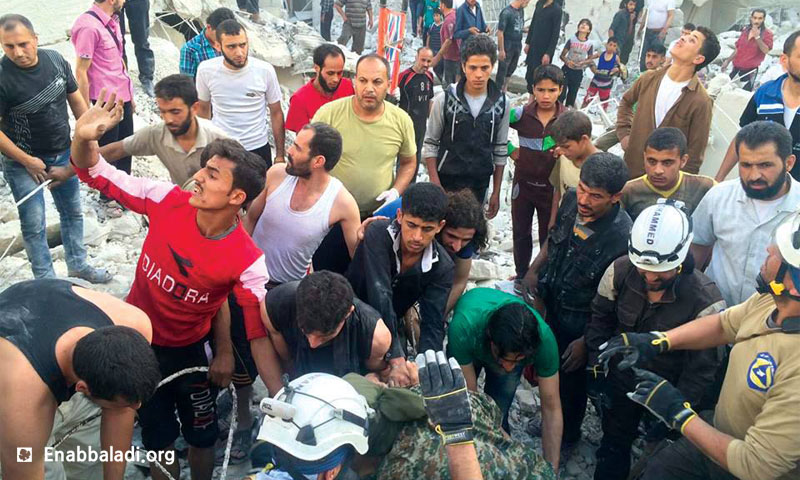






 A
A
A
A
A
A
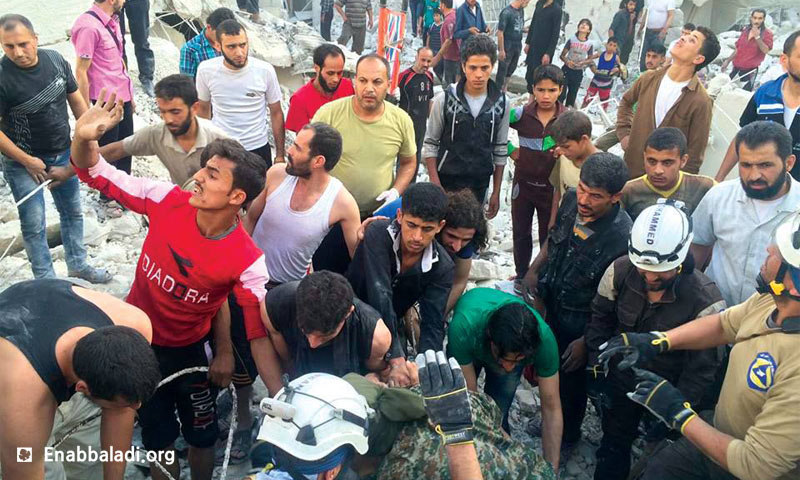


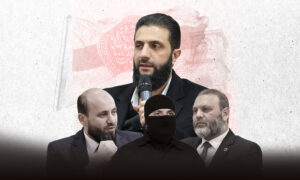
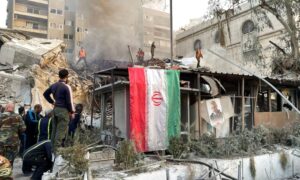
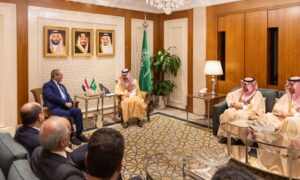
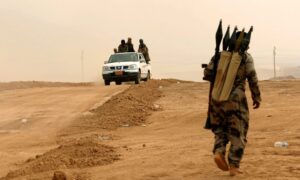
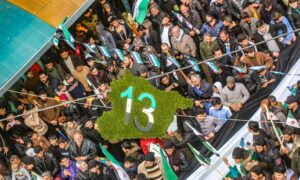
 More In-Depth
More In-Depth